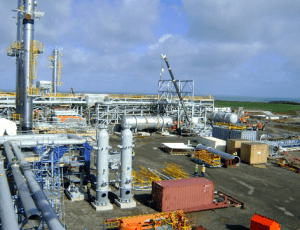Farmers decry scanty compensations for oil and gas projects
 Farmers in the six coastal districts in the Western Region whose farms were seized for oil and gas projects have complained about inadequate compensation package received from oil and gas companies operating in the catchment area.
Farmers in the six coastal districts in the Western Region whose farms were seized for oil and gas projects have complained about inadequate compensation package received from oil and gas companies operating in the catchment area.
They bemoaned low compensation package recommended by officials of Land Valuation Division of the Land Commission after the evaluation of crops and other property destroyed on their farms.
These concerns came to light at a public forum organised by the Western Region Coastal Foundation (WRCF), a registered company based in Takoradi, to address the expectations of people in the region following the discovery and exploration of oil and gas in commercial quantities.
Supported by UKAID through the Department of International Development, the forum
brought together representatives from civil society organisations, chiefs, the media, heads of department, as well as representatives of oil and gas companies operating in the region.
Mr Kojo Amoah, one of the affected farmers from Sanzule in the Ellembelle District, said he received a paltry GH₵ 30 on each coconut tree assessed in his farm and argued that the total amount paid was not sufficient to sustain his family.
The farmer argued that he could harvest the coconut farm for the next 25 to 30 years if they were not destroyed and insisted that the compensation package should be sufficient to sustain him and his family.
Mr Francis Arthur, another farmer from Nsien in the Nzema East Municipality, decried the amount paid as compensation, disclosing that only GH₵1,400 was paid to him for his coconut plantation.
He said the plantation was his lifetime investment and he had not learned any employable skill that could sustain him for the rest of his life therefore he must be paid every month in order to cater for his family.
Mr Samuel Amissah, a resident of New Takoradi in the Sekondi-Takoradi Metropolis, noted that the 111-kilometre underground gas pipelines from Atuabo to Aboadze metering station passed through people’s farms but those affected farmers were yet to receive their compensation.
In a rebuttal Mr Joseph Armah, a representative of Ghana Gas Company, indicated that the company had paid 99.5 per cent compensation to affected farmers whose crops were affected during the construction of the Western Corridor Gas Infrastructure Development project.
He said the company paid the recommended rate and gave the assurance that outstanding compensations would soon be paid, adding that the company would soon roll out alternative livelihood programmes for communities within its operational area.
Meanwhile, Mr Samuel Bentil Adjei, an official from the Land Valuation Board (LVB), explained that the Board takes into consideration three things when assessing property of affected persons before issuing recommendation on compensation package: the crops, structure and land.
He said the compensation packages recommended were based on approved rate by the government while land owners are required to submit a statement of claim.
Thereafter, the LVB investigate whether the claim made to establish if it is litigation-free, before any recommendation is made for payment.
Mr Adjei admitted that land owners along the gas pipelines from Atuabo to Aboadze are yet to receive their compensation and assured them that the necessary documentation is being processed for payment.
Madam Bernice Sam, a Dialogue Leader with WRCF, said the company provides space for engagements between multinational companies and communities in the six coastal districts where oil and gas is being drilled, to address their expectations: the Jomoro, Ellembelle, Nzema East, Ahanta West, Shama and Sekondi-Takoradi districts
Source: GNA
